Ecotourism
Want to be the solution? We have an application-only ecotourism program for nature lovers around the world. Come enjoy healthy ecosystems and learn from experts how to maintain them.
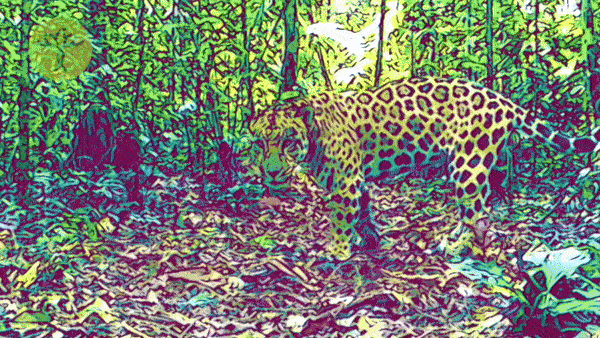
Theory
We’re actually pretty picky about who gets to visit our sites and why. The reason is, we’re big on outcomes. People coming for the right reasons bring positive social reinforcement and leave with meaningful insights. By design.
We 💜 ecotourists! Friends who love #Nature are awesome!
We 💜 ecotourists! Friends who love #Nature are awesome! 🌿💚 There's something truly special about those who seek the beauty of the natural world, who cherish its wonders and understand the importance of preserving it. The trails we walk, the mountains we climb, and the rivers we cross are reminders of how connected we are to this planet. Thank you to all the passionate ecotourists out there for making every adventure meaningful and for being part of the change that will help protect our environment for generations to come! 🌍✨
She talks about her journey to the jungle. 💓
Bea, an experienced hiker, #ecotourist, and friend from Slovakia, found the perfect blend of #adventure, beauty, #conservation, and love for nature during her visit to Putumayo. She talks about her journey to the jungle. 💓
#Nature has so much to offer and together we can take care of it! 🦜🌍
Esteban tells us how rewarding it has been to protect #Biodiversity in the Amazon Piedmont. With the help of Savimbo, he has witnessed the hope that comes from observing a rich variety of life: reptiles, birds, mammals, and amphibians. 🌿
Elena started as an ecotourist, and continued as a friend ❤️. In this post, she highlights how shared experience of the jungle can transform lives.
Elena started as an ecotourist, and continued as a friend ❤️. In this post, she highlights how shared experience of the jungle can transform lives and emphasizes the vital role of conservation efforts NOW.
David, an #ecotourist and a friend, talks about his visit to #Savimbo. Like, follow, or share if you're coming to visit too!
David, an #ecotourist and a friend, talks about his visit to #Savimbo. Like, follow, or share if you're coming to visit too!
https://www.savimbo.com/ecotourism.
Maria, an #ecotourist and a friend, speaks of CLEAN ecosystems and grassroots conservation.🫶🏽
Maria, an #ecotourist and a friend, speaks of CLEAN ecosystems and grassroots conservation.🫶🏽
Our friend Anapurna, talks about her journey to the jungle, and love for Nature. 💓
Annapurna, an experienced hiker, #ecotourist, and friend from India, found the perfect blend of #adventure, beauty, #conservation, and love for nature during her visit to Putumayo. She talks about her journey to the jungle. 💓
Sian, an #ecotourist and friend, says work done to preserve #jungle areas requires dedication, time, and true community awareness.
Sian, an #ecotourist and friend, can recognize that the work done to preserve #jungle areas requires dedication, time, and true community awareness. She values the conservation efforts taking place in the jungle and the valuable lessons on caring for and protecting nature. 💟 🍃
Savimbo has an application-only ecotourism program, like the Galapagos for real nature lovers, climate nerds, and friends. Take tech-savvy treks through the Amazon and create fair-trade tourism.
Savimbo has an application-only ecotourism program, like the Galapagos for real nature lovers, climate nerds, and friends. Take tech-savvy treks through the Amazon and create fair-trade tourism.
- Learn ecology from indigenous groups and small farmers who've been here for centuries
- See rare species with the people who know them best
- Traditional medicines, culture, language, and archeology
- Cutting-edge applied research and grassroots activism
We could go on, there's a lot to discover!
We particularly love biologists, bird-watchers, climate nerds, drone operators, videographers, photographers, endurance athletes, linguists, and friends! 🌎
Whats ecotourism? This article is for the conscious modern traveler. Travel with social justice and cultural preservation.
Social capital is something Indigenous communities have in abundance. Here's why understanding it is essential to fair trade.
Attention to cultural competence is a key part of our success and a core company focus. Here’s why.
Results
Here’s our public data dashboard about who visits our sites and why.
Ecotourism experiences
Come put out a video camera, track, and categorize a species from a jungle hike.
Our biodiversity experts are some of the toughest people on the planet. For endurance athletes and fitness buffs!
See a local jungle harvest of an Amazon staple superfood —chontaduro agroforestry.
Our friends the Cofán are willing to share cultural experiences and traditional lifestyles with respectful visitors.
Our friends the Embera chami are willing to share cultural experiences and traditional lifestyles with respectful visitors.
Rare frogs with experienced guides. (No frogs are killed in this awesome dusk experience. But many spiders are also found.)
The best way to meet a local smallfarming community in a biodiverse region is through the amazing farmer's market!
Want to support smallfarmers and Indigenous groups who guard sacred, and ancestral sites? So do we.
Our smallfarmers have a number of sites you can visit to explore how cacao is organically farmed and cultivated.
Spend a day learning a rare Indigenous language with a native speaker!
We partner with licensed taitas (shaman) who provide traditional ceremonies to visiting ecotourists.
Tour a working farm with a smallfarmer host to see how superfoods are hand-grown with natural ecology.
Walk deep into the jungle to experience sightings of rare birds with experienced guides.
Easy hiking with an experienced local guide to see a wide variety of native birds.
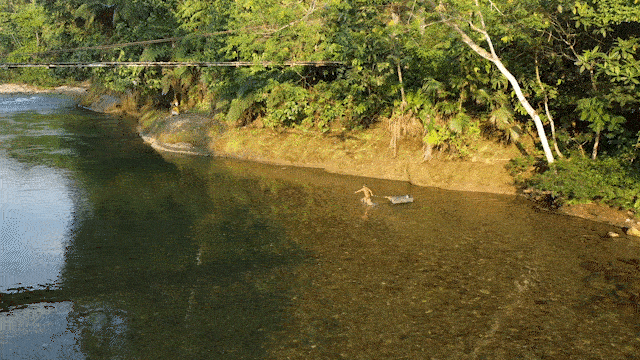
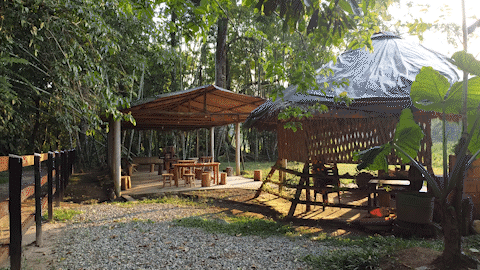
-
"My experience in the jungle was pretty intense. I enjoyed hiking in the forest, it felt great to be surrounded only by nature, with animals, strange insects, and plants to discover everywhere! It felt like the natural way to live.
— Johanna C. (Savimbo ecotourist)
-
“Ecotourism is a catalyst for the circular economy, where resources are valued, reused, and regenerated, creating a sustainable cycle of economic prosperity and environmental stewardship.”
— Ellen MacArthur Foundation
-
“In the tapestry of life, indigenous peoples are the vibrant threads that weave together biodiversity, cultural heritage, and sustainable futures.”
— United Nations Development Programme (UNDP)
-
“Ecotourism is a powerful tool for biodiversity conservation, allowing visitors to experience and appreciate the natural world while supporting conservation efforts and local communities.”
— Convention on Biological Diversity (CBD)
-
“Empowering indigenous communities is not just a moral imperative; it is an essential step towards building a more inclusive and sustainable world, where diverse voices and cultures contribute to the richness of our shared humanity.”
— United Nations Declaration on the Rights of Indigenous Peoples










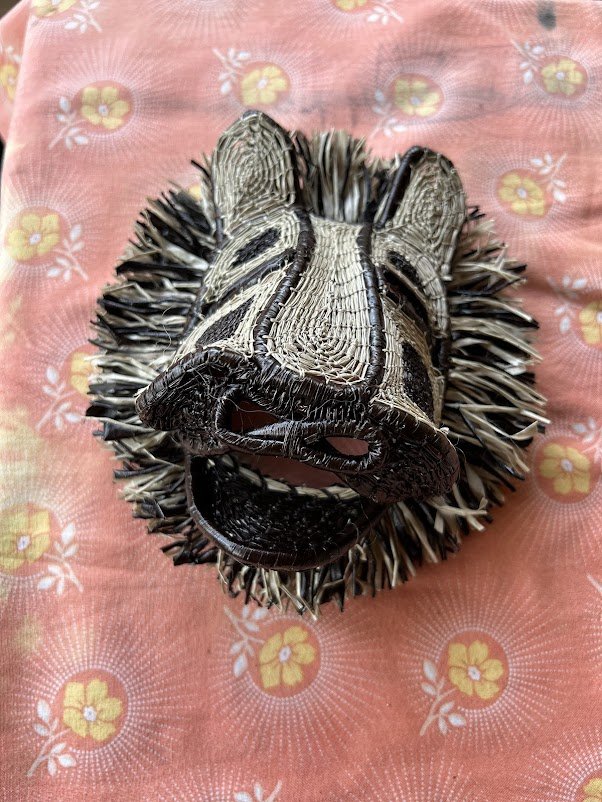

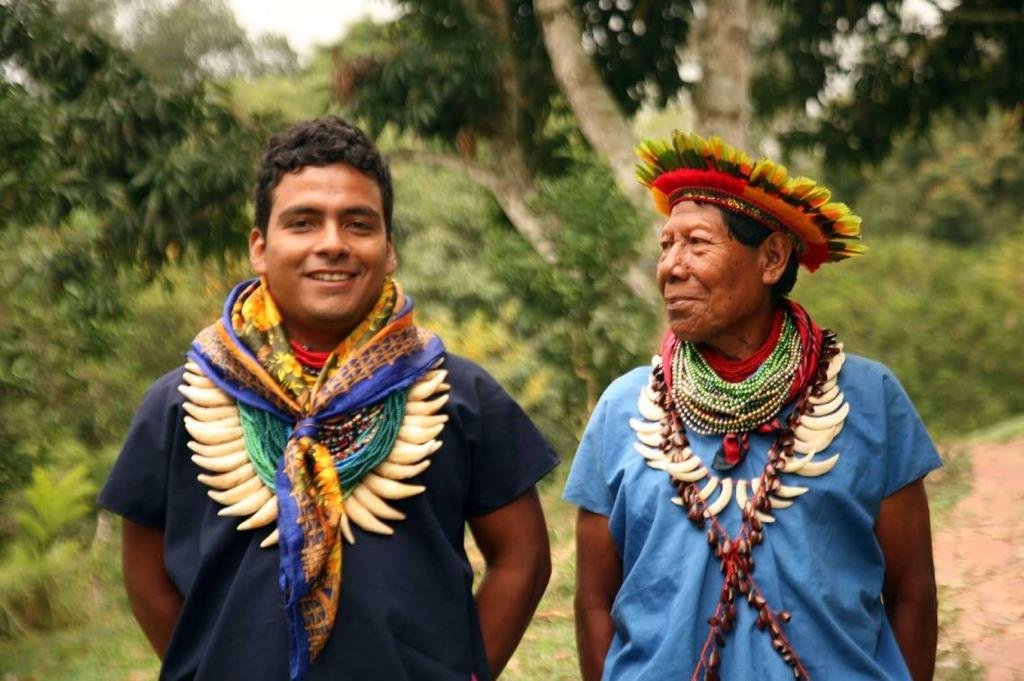















Breaking news! Our friend Yoni offers a special report on his visit to the #Jungle
Breaking news! Our friend Yoni offers a special report on his visit to the #Jungle. 🚨 #Ecotourism #Savimbo
Joni has a career in nature and biodiversity and hails from London, U.K. He'd heard amazing things about Savimbo and paid us a visit!